#Barbarus
Text

“it will not be”
Jim Lee - Scott Williams
#Magneto#Rogue#Barbarus#Amphibious#Whiteout#Savage Land Mutates#Jim Lee#Scott Willaims#Savage Land#X Men
48 notes
·
View notes
Text
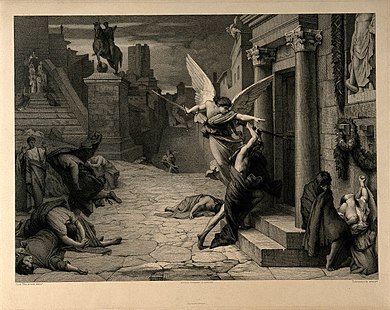
Soon....
7 notes
·
View notes
Text
Barbarus - Chapter 4 of 5 - The Altar
Fandom: The Rings of Power
Rating: Explicit | Galadriel x Halbrand
Series: Time And Time Again with @coraleethroughthelookingglass
Well, this adventure is almost coming to its logical conclusion. This chapter features Latin, which I don't know but felt it would have been too sacrilegious to use Google Translate for, so @ichabodjane stepped up to help because she's an ANGEL!
‘Celeborn ede mardam’ found inscribed in the bricks that must have lined the barrack walls across from the decurion’s quarters was downright hysterical. Eat shit Celeborn. He clearly hadn’t been the god among men to everyone at Cilurnum. But that wouldn’t be the only colourful thing that’d been discovered in the same area.
16 notes
·
View notes
Photo


For some reason Rogue’s power isn’t working... also we see her and Mags have developed a bit of a relationship... what with him going so far as to relate her to his lost wife...
23 notes
·
View notes
Photo

Barbarus! . Barbarus is one of the Savage Mutates that lived in the Savage Land! . What do you think about Barbarus? . 1st - 4th slide is from the Official Handbook of the Marvel Universe v3 7 (1991) by Keith Pollard and Josef Rubinstein. 5th slide is from X-Men Unlimited vol 1 6 (1994) by which artists? . #barbarus #savagemutates #savageland #marvel #supervillain #fourarms #savage #90s #unlimited #xmen #havok #polaris #cyclops #jeangrey (at Savage Land) https://www.instagram.com/p/Ch0QjNYMDwv/?igshid=NGJjMDIxMWI=
#barbarus#savagemutates#savageland#marvel#supervillain#fourarms#savage#90s#unlimited#xmen#havok#polaris#cyclops#jeangrey
6 notes
·
View notes
Text

#Vertigo#Savage Land#Marauders#Savage Land Mutates#Villains#X-Men#Marvel Comics#Femizons#Amphibius#Barbarus#Marvel
5 notes
·
View notes
Text
Messor Barbarus

[Reine Messor Barbarus avec des ouvrières et son couvain] Photo par MicroBestiaire!
La fourmi moissonneuse
Une fourmi passionnante!
Les Messor Barbarus sont des fourmis granivores de taille moyenne présentes tout autour de la Méditerranée. Leur développement rapide fait qu’elles forment vite de grande colonie! C’est une fourmi fascinante qui aide à la fertilité du sol en dispersant des graines!
Les colonies peuvent atteindre +/- 10 000 ouvrières!
Morphologie
Particularités
Fourmi de taille moyenne
Polymorphisme*1 élevé!
Ne possède pas de jabot social*2 (ne pratique donc pas la trophallaxie*3)
Couleurs
Ses fourmis sont principalement noires avec une tête noire à rouge. Au début de leur vie, les ouvrières sont jaune pâle et prennent leurs couleurs avec le temps!

[Ouvrière Messor Barbarus nouvellement née au côté d’ouvrière plus âgée et de la reine] Photo par MicroBestiaire!
Tailles
Reines: 14 à 16 mm
Ouvrières: 2 à 12 mm (Elles disposent de 3 castes4: minor, média et major)
Mâles: 8 à 9 mm
En nature
Biotope
C’est une espèce méditerranéenne plutôt commune qui apprécie les zones ouvertes comme les prairies.
Elles aiment faire leurs nids dans les lieux dégagés. On peut facilement les reconnaitre au déchet de graines qu’elles jettent à l’entrée!
Démographie
Les colonies peuvent atteindre plus ou moins 10 000 ouvrières!
Comportement
Les Messor Barbarus sont dominantes.
Bien que pas faite pour la chasse, elles sont plutôt agressives!
En été, elles ont tendance à fourrager le soir lorsque les températures sont plus fraiches.
C’est une espèce monogyne mais la polygynie est parfois observée en élevage.
Alimentation
Granivores
Insectes (de manière opportuniste)
Essaimage
L’essaimage se fait de septembre à octobre. Ils sont massifs. Certaines colonies ne produisent que des mâles ou des femelles.
Fondation
Indépendante et claustrale, la reine tiendra sur ses réserves jusqu’à avoir ses premières ouvrières qui récolteront les graines. La reine a tendance à commencer à pondre après son premier hiver.
En élevage
Comportement
C’est une espèce sujette au stress mais pourtant facile d’élevage.
/!\ Les vibrations font facilement paniquer la colonie.
Ce sont des fourmis agréables à vivre, toujours actives et un peu maladroites ce qui est plutôt drôle à voir!
Parfois un peu cracra.. Elles sécrètent un antifongique (observable sous forme de trainer blanchâtre) qui peut faire plutôt sale dans une fourmilière. Elles adorent aussi étaler leurs urines d’après mes observations. De vraies artistes!
Alimentation
De par leur régime granivore*5, ses fourmis fabriquent du pain de fourmis à partir de l’amidon contenu dans les graines! Il faut cependant éviter de donné de grosses graines tant que la colonie n’a pas de major. Préféré de petites graines comme celle du lin, quinoa, laitue ou pissenlit.
Ce sont de mauvaises chasseuses! Cependant elles ne refusent pas des insectes (mort) de temps à autre.
Même si elles ne pratiquent pas la trophallaxie, les ouvrières apprécieront tout de même un peu de liquide sucré de temps en temps. De quoi leur apportait un enrichissement nutritif.
/!\ Un abreuvoir d’eau doit toujours être mis à disposition dans l’aire de chasse! Sans ça elles ne peuvent fabriquer du pain de fourmis.
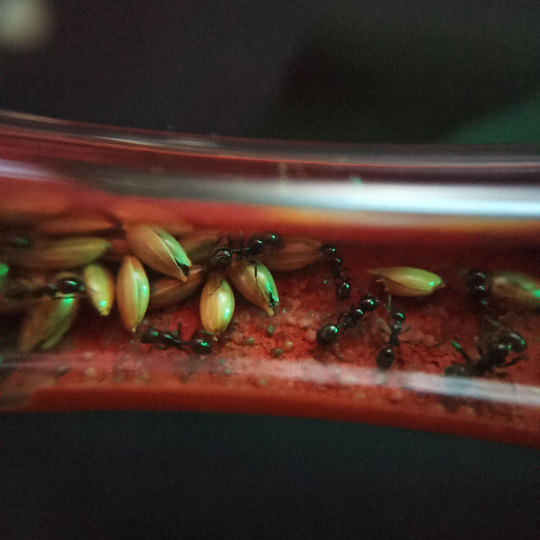
[Messor Barbarus dans leur réserve de graines] Photo par MicroBestiaire!

[Ouvrières Messor Barbarus fabriquant du pain de fourmis] Photo par MicroBestiaire!
Conditions de maintien
Température:
20°C à 30°C
Optimal: 25°C à 30°C
Hygrométrie:
50% (voir un peu plus)
Une partie sèche pour le stockage des graines.
Diapause*6:
3 mois entre 10°C et 15°C
Nid
Un nid d’au moins 1 cm de profondeur est nécessaire. Les ouvrières doivent pouvoir grimper les parois afin d’avoir la tête en bas pour la fabrication du pain.
C’est une espèce foreuse. Il ne faut donc pas un nid avec des matériaux friables (comme le plâtre).
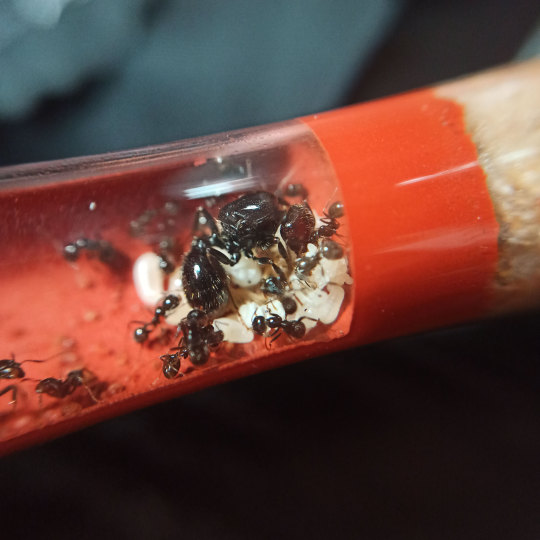
[Reine Messor Barbarus avec des ouvrières et son couvain] Photo par MicroBestiaire!
Caractérise la capacité à se présenter sous différentes formes.
Un deuxième estomac utilisé comme réservoir pour la récolte, le transport et le stockage de matériaux liquides jusqu’à la colonie ainsi que leur partage.
Mode de transfert de nourriture d’un individu à un autre utilisé par certains insectes.
Groupe social hiérarchisé.
Qui mange des graines.
Phase génétiquement déterminée dans le développement d’un organisme au cours de laquelle celui-ci diminue l’intensité de ses activités métaboliques.
Pour plus d’informations, vous pouvez consulter les sources suivantes :
INPN: https://inpn.mnhn.fr/espece/cd_nom/219406
AntsFourmis: https://antsfourmis.fr/messor-barbarus/
Antariums: https://antariums.org/fiches-d-elevage/europe/messor-barbarus/
Wikipédia: https://fr.wikipedia.org/wiki/
0 notes
Text

New Avengers
Volume: 1
Issue: 5
Breakout!: Part 5
Writer: Brian Michael Bendis
Penciler: David Finch
Inker: Danny Miki
Colourist: Frank D'Armata
Cover: David Finch
Marvel
#New Avengers#Avengers#Marvel#Brian Michael Bendis#David Finch#Danny Miki#Frank D'Armata#Amphibius#Barbarus#Brainchild#America#Gaza#Iron Man#Luke Cage#Lupo#Sauron#Sentry#Spider-Man#Veranke#Vertigo#Whiteout#Wolverine#Worm#Yelena Belova#Black Widow#Captain America#Karl Lykos
1 note
·
View note
Photo
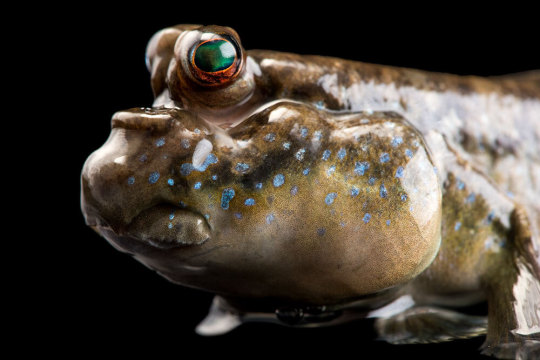
Scientists studied the Atlantic mudskipper, P. barbarus (seen above at the Aquarium of the Pacific in California).
PHOTOGRAPH BY JOEL SARTORE, NAT GEO IMAGE COLLECTION
#joel sartore#photographer#national geographic#atlantic mudskipper#p. barbarus#fish#marine#aquarium of the pacific#nature
70 notes
·
View notes
Photo



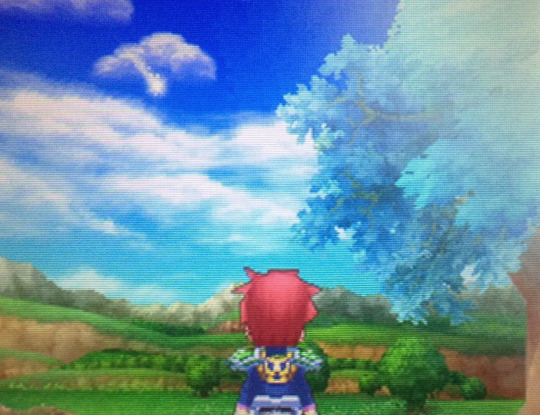
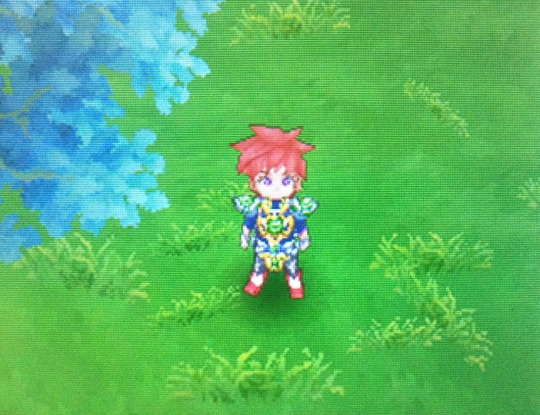
I can’t see a damn thing
#DQIX#WPDQIX#WPVG#Where are my glasses!#So anyway I finally beat this save lol#Well - made it to postgame anyhow#Which is long haha#Everyone still sub 50 level-wise! That's remained consistent#Although a lot of extra levels in other vocations to build up points#I cannot BeLieve Goresby-Purrvis TKO'd me on my first attempt back - I was well-leveled! I was fine!#RNG >:(#We beat him the second go around - after I looked up a guide to make sure I wasn't trying to fight him way underleveled lol#No I was actually over by like.......5-8lvs............................#His OHKO move is way too OP he managed to successfully roll it Twice in his turns >:0 Hate that furry#Anyway the rest were a cake walk lol#Like yeah I went and healed after Barbarus but aside from that I didn't even bother pfft#I didn't realize I had so little of the main campaign left! Like I'm happy to be in postgame now but dang I could've done this way sooner#I'll run around with the Express after a bit ♪ Wanna see if I can unlock some of the other vocations and collect more clothes#Do a full aesthetic run lol - finish out the Mini Medals sidequest#Plenty to do yet!#Then I really wanna look into a recording setup for my 3DS hmnn#I don't really want to send this lad away to get rigged up - and I have been looking to buy a new one but hmmnnn#I dunno#Worst case I just stream with DeSmuMe lol#I'd love a physical copy of Kuzu's adventure <3 But I also can't deny the usefulness of save states#Going back to the church every time is....Mm#I wonder if there are any USB DS controls I could use :0 That's be great I love the way the buttons feel#Still - it being a slower paced game wouldn't make it particularly demanding haha
14 notes
·
View notes
Text

corvASS
#saving adventure log#gonna let you in on a secret bc nothing in the game tells you#corvus is made from a 4 way synergy of all 3 members of the triumgorate and barbarus
9 notes
·
View notes
Note
My lord.... Mortarion is waiting for you, outside..... Like, right now

That was a surprise he was a little unprepared for. He glanced down at himself, currently not in his power armor. There was a nagging feeling that he should put it back on, but he didn't think Mortarian was here for a fight. If they were, there would be Deathguard with them. And from the sound of it, they likely came alone.
Roboute got up from his desk and pulled on his robe over his tunic and toga. If they were simply here to talk, there was no need to show hostility. He didn't quite rush but he moved with purpose heading to where his sibling was waiting. There was a small pause when he saw them.
"I hope I didn't keep you waiting long, Mortarian... It's been a while."
#the avenging son || self#the pale king of barbarus || mortarion#the pale queen of barbarus || mortarion#wasnt sure which it was for so i kept it gender neutral#cause i know theres several female primach blogs around so i dont wanna assume anything#robu's also still a little unsure about how his siblings feel about him so hes being cautious
3 notes
·
View notes
Text
Ardeo
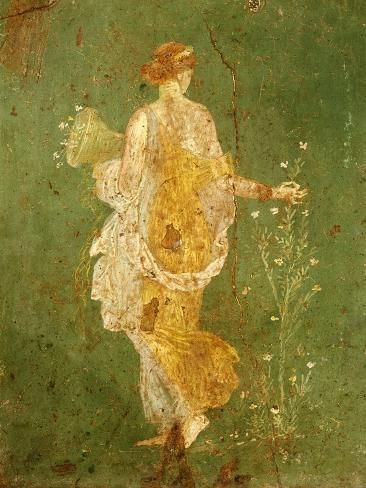
Caracalla gets a fever. Part IX of my Emperor Caracalla series.
No warnings, unless you're squeamish about smallpox. I'm not an immunologist, so note I'm taking poetic license here for dramatic effect.
Interesting fact: Inoculation was thought to be developed in China more than 1,000 years ago. Who knows if other cultures explored it around that time or earlier.
----
The fever was stealthy, as the worst ones often were. Caracalla was riding, the wind warm on his back, his retinue of Praetorians riding in formation beside him, when he felt light-headed. The sun is in my eyes, he thought, the angle too bright. But when he arrived back at the fort and dipped into the coolest of the three baths, he felt only discomfort.
At that evening’s feast, he felt peckish and cross (more so than usual), unable to muster even a sarcastic retort to Julia Domna’s shrewd analysis of the Legion’s military strategy along the Rhine river. Only Gelvira seemed to sense something was amiss, her fingers quietly brushing his as he poured his fourth cup of wine, his hand shaking as he set the heavy goblet back down on the table with a splash. “Perhaps Caesar needs to rest,” she murmured softly, the only person who could suggest the idea of his vulnerability without him flying into a rage.
Caracalla waved his hand dismissively, but it felt heavy, as if made of iron. The floor swam up toward the middle of his vision and for a moment he wondered if he had accidentally eaten another of the potent mushrooms from the night they had conceived. “Very well,” he said, and rose unsteadily from his chair.
When they entered the chamber, Caracalla bade Decimus to extinguish the fire. He leaned against Gelvira as she led him to the bed and helped him to disrobe. Caracalla fell back against the pillow and felt black exhaustion overcome him.
By morning, he was on fire. The cushions beneath him were wet with his sweat, and a strange sour taste was in his mouth. That day, Gelvira did not leave his side, wiping his brow with fresh cloths dipped in cool water that smelled of crushed peppermint to cool his skin. Decimus brought him mead and wild boar for strength, but he could not eat. His mother glided into the chamber as the sun set and laid her hand above his brow, a stern look on her face. She glanced at Gelvira, who was holding his hand, and tilted her head toward the doorway. “Healer, speak with me.”
“No,” croaked Caracalla. “She stays.” Julia pursed her lips into a thin line, but nodded and exited the chamber. Gelvira turned back to Caracalla and clasped his hands in hers. “I am here, Lucius,” she whispered. “I will not leave you.”
“Let me feel our son,” he asked, his voice thin and stretched. “Let me feel you, Gelvira.”
Wordlessly, Gelvira slid her shift off her shoulder and placed his hands against her belly. They were as hot as tongs from the fire but she did not flinch. Caracalla closed his eyes and pressed into the hardness underneath the soft curves. He is there, he thought. My son grows strong. He is there. Darkness fell upon his thoughts once again.
_____
The next hours were some of the worst Gelvira had ever experienced. Caracalla’s fever worsened and he became delirious. Various Roman doctors and priests came and went, muttering about humors, bodily fluids, and offerings to Serapis. Gelvira did not want to leave his side, but she knew stronger medicines were needed. Caracalla was developing strange blisters around his mouth and on his tongue. Gelvira knew if he didn’t drink he would be dead by the morning, so she coaxed fluid into him as gently as she could, patiently dripping mead or water into the side of his mouth with a spoon so that swallowing was less painful. When Decimus stood in the doorway, unable to attend to Caesar with his usual duties, Gelvira bade him sit by his side and take over the task. “I’ll be back as soon as I can,” she said, gathering her shawl around her. “If he wakes, tell him I am in the next room fetching more water.” Decimus nodded somberly.
Gelvira made her way into the long hallway of the abode, praying that the sisters of the Circle would speak to her, when Julia Domna stepped into her path. Even though the hour was late she remained impeccably dressed, the jewels in her hair and around her neck glowing in the light of the wall sconces.
“What is your plan, healer?” she asked imperiously, but Gelvira sensed her anxiousness. Without one of her sons holding the reins of the Empire her own place was tenuous, her power only permitted by her connection to her firstborn.
“I must confer with my Circle,” said Gelvira. “They hold the wisdom of 1,000 years. If this disease is known to our people, they will know of medicines to cure it.”
“Your people cannot make an offering to Serapis or to Asclepius,” Julia answered. “Only the Gods can heal my son, so that he may rise from the ashes of this disease and fulfill his destiny.”
Careful of what you speak of, thought Gelvira. She had heard the stories of the sick and nearly dead burned alive, to ward off contagion from the plague that had swept through the land in her forefathers’ time. Even now, pits of ash were scattered through lower Alemania, Roman soldiers and barbarian farmers alike. The Suebi would not plow plants in these fields, afraid that the roots would bear bitter fruit and spread death.
“He needs medicine,” Gelvira said again, clenching her jaw in frustration. She daren’t speak of her darkest fear - that Caracalla had somehow contracted the storied plague from before, for his symptoms were troublingly similar. “Please,” she said quietly, “let me help him the way I know how.”
Julia drew a deep breath and her nose flared in disdain, but she stepped aside to let Gelvira pass. “Do your best, healer,” she called after Gelvira. “For my son cannot die.”
—--
Caracalla runs, panting, through the narrow alleys of the northern spur. The Coliseum lies ahead, the roar of the crowd wafting from the distance. They cheer for him but not me, he thinks. I must run faster, be stronger. He overtakes the boy, shoving him aside, and the boy trips and falls. Caracalla looks back triumphantly and the boy raises his head and his face is hauntingly familiar. “Wait,” he calls out. “Wait,” and then vanishes into the mist.
____
Upon the direction of Julia Domna, Gelvira rode to her village with Caracalla’s prefect. “Wait here,” she bade the soldier as he helped her to dismount from the horse. Gelvira ran to the dwelling on the edge of the village.
“Sisters,” she called as she entered. “Sisters, I need your help!”
Gelvira stood, panting, as the women turned toward her silently. None spoke as they gazed upon her, and Gelvira felt her face flush hot with anger. Finally, one of the leaders stepped toward her. “What is it you seek?” she asked.
“Knowledge,” answered Gelvira, “for the plague has returned.” There was a murmur among the women and several backed away from Gelvira.
“Gelvira,” said a voice, and the Eldest made her way slowly toward her, leaning on her walking stick. “Tell us everything.”
Gelvira nodded and sat near the hearth as some of the others gathered around her, but most stayed away. Gelvira spoke of Caracalla’s fever, his delirium, inability to eat or drink, the white sores that appeared around and inside his mouth. She feared they were in his throat and inside his body as well, drawing strength from him.
“Do they spread upon his body?” asked the Eldest. “Have others fallen ill?”
“No,” said Gelvira, feeling her exhaustion come across her suddenly. She hugged her arm around her belly, as if she could protect the life growing inside from the threat.
“If the blisters turn black he is dead,” said the Eldest. She intoned the rhyme that had been passed down, Sister to Sister, so that the knowledge was not lost:
Black and blood grows the heat
Until the body covered complete
Eyes are dazed mouth is full
Until the gods of death pull
None should live unless they leap
Into silvery scars that heap
Along the skin that slivers and cracks
Life returns but strength not back
Gelvira scowled at the fire, her mind working furiously in concentration. “So if the blisters fill with blood it is too late, but if they remain white, he will live?”
“I cannot say,” said the Eldest. “I remember it was capricious. Some would suffer terribly and yet recovered from it, others barely showed symptoms but dropped dead without warning. I thought I was spared until the end. I never recovered enough strength to run again.” She looked down at her walking stick for a moment.
“How many died in the village?” asked Gelvira. The Eldest shook her head. “Too many.”
Gelvira wrung her shift in her hands, staring into the fire. She felt lost and unsure what to do. The Eldest laid a soft bony hand upon her lap, startling her from her reverie. “Gelvira,” the Eldest said softly, “you must protect the life you carry. You cannot tend to Caesar in this fashion. I fear it may already be too late.” Gelvira began to shake, and the Eldest took her hand and comforted her as tears began to flow. “We must perform the ritual, without delay. Prepare yourself.” Wiping her face, Gelvira nodded.
_____
Gelvira clung tightly to the bandage around her arm, held (ironically) in place by the golden cuff. She was anxious to get back to the fort, fearing the ritual had taken too long. In her hands she held a small leather pouch. The Praetorian noticed it as he helped her back onto the horse. “Is that for Caesar?” Gelvira shook her head. “No, it is too late. But it is for you, and for others who have touched him. It was given with great sacrifice.”
The Praetorian pursed his lips and muttered something that sounded like ‘barbarian’ but Gelvira had lost any concern of what Caracalla’s prefect thought. Her mind was racing furiously. The Eldest had given the most, but a few others in the Circle had also survived the plague as children, and they too opened their wrists to mix their blood into the pot. Gelvira had gritted her teeth as her arm was sliced and the mixed blood dabbed into her wound. The Eldest spoke to her as another Sister poured the liquid into the pouch. “You must perform the ritual on the others when you return. They all will fall ill but will not die from it. Your Caesar is too far gone to benefit from it. I’m sorry, Gelvira.” She patted her shoulder, and her eyes were kind. “We will pray for you. And pray that whoever rules Rome remembers this kindness from the Suebi. We are counting on you, Gelvira.” Gelvira nodded, too tired to respond.
—--
Caracalla crouches in a thicket of nettles, just beyond Hadrian’s Wall. He’s on the north side, the rugged side. Braver than the others. Let the Caledonians come, he was ready. The nettles itch, the fire from their stingers traveling up his back and surrounding his neck. He has to focus, to concentrate. He senses movement ahead and throws his knife, hitting a young boy in the chest. He rises, making his way to see but the boy sinks into the ground. The nettles are all over his skin, stinging, and the pain begins to take over his senses, driving him mad.
_____
When Gelvira returned to the fort, it was eerily silent. Even on the darkest night there were always one or two soldiers busting about, attending to some matter or drunkenly going about their business, but now it was as still as a tomb. The prefect looked around nervously as he led his horse to the stable and Gelvira ran to Caesar's abode.
She entered Caesar’s chamber to find Decimus sitting next to him with a glazed look in his eyes, sweat pooling down the back of his tunic. I must not delay, she thought. “Decimus,” she said softly, touching his arm and finding it too hot for her liking. “Please fetch Julia Domna and anyone who has entered Caesar’s chamber.” Decimus blinked and nodded, standing unsteadily and making his way out of the chamber as if in a daze.
Gelvira turned to look at Caracalla and she had to clap her hand over her mouth to stop from screaming. In the hours since she had been gone the blisters had spread to his face and neck. She lifted the coverlet to see they were on his back and shoulders as well. His skin was red but the pallor on his face was white.
“What have you brought us, healer?” Gelvira turned as Julia Domna and her retinue entered, followed by Decimus. Gelvira gestured to the pouch in her hand. “Life.”
____
Gelvira worked feverishly over the next hour, dabbing the blood mixture into the arms of more than a dozen people. Decimus went first, holding his arm as the prefect cut it with a knife and Gelvira used the flat of the blade to dab the Sisters’ blood into it. “Rest now,” she said to Decimus, and then attended to the prefect and several of the Praetorian guards who had ridden with Caracalla. Julia Domna and her priests observed as the guards were treated and then Gelvira looked up at them. “Please hurry,” she said, feeling a panicked urge to cover Caracalla’s body with her own. She wanted to lie down on the earth and rest forever, for she was tired beyond imagining. But she could not stop.
“The Praetorians trust you,” said Julia. “You have earned their respect.”
Gelvira said nothing. The sound of Caracalla’s labored breathing filled the chamber.
Julia looked over at her son, and Gelvira saw a torrent of emotions flicker across her face - fear, anger, sorrow and disdain. Finally she turned and sat on the stool placed near Gelvira, and offered up her arm. “I place my faith in your medicine, healer. Rome itself is in your hands tonight.” Gelvira nodded, and carefully took Julia’s arm to make the cut. Julia hissed through her mouth as the blade went through her olive skin, and watched as Gelvira repeated the ritual with her. Gelvira hoped it would be enough, for the blood was beginning to congeal.
“What of my son?” asked Julia as Gelvira bound her arm with a bandage. She shook her head. “He is too far gone. The blood is only for those who have not succumbed yet. You may get sick but will not die, for the blood is taught to fight with this.”
Julia nodded and rose to exit the chamber. Several of her priests followed but one lingered behind. Gelvira waited, to see if he would accept the ritual, but he eventually followed the others. Very well, thought Gelvira, as she looked at the bottom of the bowl. The last of the blood had dried.
_____
Without Decimus to help, Gelvira lugged water from the bath back to Caracalla’s chamber, and continued to dab his skin and trickle it into his mouth. The blisters continued to spread. A strange odor filled the chamber, and Gelvira feared it was the smell of bodily fluid. I must stop the blisters from forming, she thought. But how?
Tired, she put her head into her hands. I must pray to the All Father. But it is so hard to find the words. Closing her eyes, she formed a simple prayer: All Father, please give me wisdom. Please save him, the father of our child, who is the future of our tribe. The gods favor this child, you must spare him. Please, All Father. Give me a sign.
Her exhaustion overcoming her, Gelvira lay her head on the bed next to Caracalla and took his limp hand in her own. “Come back to me,” she whispered. She dozed off to the smell of peppermint combined with the sour stench of his sweat.
—--
Caracalla is lost, crashing through the undergrowth of thick trees, he can’t find his way out-
—--
Gelvira jerked awake. Caracalla had called out, she was sure of it. She leaned forward to hear if there was more, but he had curled away from her, exposing more of his back. Slowly she traced one of the blisters with her finger. If only I could be a balm for him, she thought. Suddenly, the answer came to her in a flash. Her tiredness gone, Gelvira stood up so quickly the stool clattered against the floor, causing a guard to rush into the chamber. “Fetch me your prefect at once,” Gelvira commanded him. “We have work to do.” The guard looked at her for a moment, then bowed his head. “Yes, healer.”
A short while later, the wind was rushing against her face, as she rode with the prefect and several soldiers into the forest. The morning sun had risen, and Gelvira spotted what she was looking for growing in a large patch near a birch grove. A sign from the All Father, she thought. It must be. Dismounting, she rushed to the field, her knife already in her hand, and gathered up the lemon balm quickly, cutting the stalks and tossing them into her basket. The soldiers followed suit. After gathering a good half of the patch, they hastened back to the fort.
Gelvira led the soldiers into the kitchen, startling the cook. Gelvira cleared the table so the men could quickly begin to cut the plants into pieces. Gelvira stirred the chopped leaves into a large pot mixed with oil. She bade the cook to boil water and commanded the kitchen slave to gather dozens of cloths and to make sure they were clean. When the kitchen smelled like lemon, Gelvira knew it was time. “Go, bring these to the bath house, and keep them warm,” she said and the slave nodded. Gelvira turned to the soldiers. “Come with me. Hurry.” They ran to Caracalla’s chamber.
The chamber was dark and the air thick with incense, but it did little to mask the foul stench. Julia Domna was on her knees before the rekindled fire, muttering incantentations to a clay figurine. Several of her priests were gathered around Caracalla and Gelvira saw they were preparing to bleed him. Gelvira summoned every bit of authority she had accumulated over the past months into her voice. “No!” she said firmly, and the priests paused in the dim light.
Gelvira turned to the soldiers. “Soldiers of Rome. You must trust me. I have spent many moons healing your brothers. I know a better way. Please. Have faith in my gods and my people. Help me carry him to the bath house. The wounds must be washed.”
There was silence in the chamber, and Gelvira held her breath- Would the soldiers listen? Would Julia and her priests yield?
Without a word, the soldiers moved forward in formation and shoved the priests aside, lifting Caracalla from the bed. Julia Domna rose to standing but said nothing. Caracalla hung limply as the guards carried his naked body out of the room. Gelvira ran after them, followed by Julia and the priests.
When they arrived at the baths, all eyes turned to Gelvira. The Romans were silent as she inspected the pot of simmering lemon balm and the pot of boiled cloths. It was now or never. Gelvira turned to Julia. “We must bathe him, so that his blood will not become poisoned.” Julia nodded and signaled to the soldiers, who lowered him into the water. Gelvira fetched several of the boiled cloths and waded into the pool after them. She began to gently clean the blisters along Caracalla’s face and neck as the men held him. Caracalla’s eyes fluttered open and he seemed disoriented, but he didn’t protest.
Julia waded in as well, and the women worked together, dabbing the hot cloths against the blisters. As they worked, Gelvira called out for the slaves to bring fresh linens and to lay them on the tile. As soon as they did, she bade the men lift Caracalla onto the sheets. Caracalla’s eyes were darting from side to side and his tongue was lolling out of his mouth, but he did not seem to see them. Gelvira knelt down alongside and gestured for the lemon balm leaves to be brought to her. Carefully, she dipped one of the cloths into the pot, wrung it carefully and placed it against his blisters. The Romans watched as she slowly covered Caesar’s body with the bandages, layering them over each other until only his face was visible. She then wrapped the sheet over him tightly, sealing in the steam and balm oil. Her work done, Gelvira wiped her face and sat up.
“It will cool into a salve, to prevent more blisters from forming. He must be kept clean, so the blisters do not fester. If they turn black his blood is poisoned. If they remain white he may-he may live.” She fell forward onto her hands, her braid undone, and let out a shuddering breath.
Silence. Only the sound of water lapping against tile. Gelvira realized that Caracalla’s breathing appeared less labored.
“It will be done, healer.” Julia’s words echoed across the room, and Gelvira felt a surge of relief before she collapsed in exhaustion.
—---
Caracalla was standing in brackish water, green slime gathering along the edge of his toga. The mud between his toes was sticky and he had to fight to lift each foot as he staggered forward. Each step was more draining than the last. After toiling for what seemed like an eternity, he knelt down in the water to rest. Just for a few moments, he thought. I only need to rest a few moments.
“You’re too stubborn to ask for help,” said a voice, and Caracalla turned to see a young girl, barely old enough to be on her own, her shift torn and dirty, standing at the edge of the brackish pond. Though her face was streaked with dirt she had a regal air, and Caracalla saw the wildflower crown in her hair. I know this face, he thought. “Gelvira,” he whispered. “Help me.”
“What’s the magic word?” asked the child.
Caracalla sighed, and black water wafted under his chin. It was soft, and he wondered if he let his head slip underneath whether it would feel like drifting off to sleep. “Please,” he whispered. “Please, my love.”
“Thank you and you’re welcome,” said the child, and tossed him her flower crown. Caracalla held it in his fingers, until the flowers unwound into a long thread, and the child pulled, and Caracalla was lurching forward, climbing, until his feet touched the hard pebbles underneath the surface that led to the edge. He crawled out of the swamp and flopped onto his back. The child stepped over him, her face and long curls blotting out the sun. “You’re silly,” she said, before running back into the meadow.
Caracalla sighed, and drifted off.
____
Gelvira woke at dusk. Slowly, she sat up from the bench in the corner of the bath house, stretching her stiff neck. The slaves were re-applying fresh lemon balm cloths to Caesar’s blisters. Gelvira rose to inspect their work, and she noticed that Caracalla’s coloring seemed better. She knelt and grasped his hand as the slaves continued their ministrations.
“He rests easier,” said one of the slaves. Gelvira nodded, and prayed silent thanks to the gods. Looking around, she asked quietly, “What of the others?”
“They have succumbed,” said a slave, “but it is not as it was with Caesar.”
“Decimus?” Gelvira whispered, afraid to hear the answer.
“He fevers, but no blisters my lady,” answered another.
Lady, thought Gelvira. If they only knew.
Later, after tending to all of the afflicted, she stepped out into the twilight, and took a deep breath of misty evening air. A night swallow flew overhead, and Gelvira took it as a sign that the worst had passed. Quietly, she laid a hand on her belly.
The sound of footsteps startled her, and she turned to see Julia Domna approaching, followed by two priests. Only two, thought Gelvira. Julia’s sharp eyes glanced down at Gelvira’s hand on her belly as she strode past her, followed by the priests and several men carrying a body wrapped in a cloak. They slowly filed toward the courtyard, where soldiers were erecting a pyre.
The body burns until it meets the fire, thought Gelvira. But my Caracalla lives. My lover lives.
#barbarus#caracalla x gelvira#gladiator II#make way for the emperor#joseph quinn#joseph quinn fic#joseph quinn angst#hurt/comfort
6 notes
·
View notes
Text


From Mojo Jojo's Carnival of Confusion, an activity book based on PPG 2016.
7 notes
·
View notes
Text

Deercember Day Twenty-Nine: Barbary Stag | Lights
The Barbary stag (Cervus elaphus barbarus), also known as the Atlas deer or African elk, is a subspecies of the red deer that is native to North Africa. It is the only deer known to be native to Africa, aside from Megaceroides algericus, which went extinct approximately 6,000 years ago. Recent genetic studies indicate that the North African red deer population is practically indistinguishable from the Sardinian and Corsican populations, generally referred to as the Corsican red deer. This strongly argues for an ancient introduction of red deer from North Africa to these Mediterranean islands by humans. Further analysis suggests that the Barbary stag, including the Corsican red deer, belongs to a separate species, and should be grouped under the name Cervus corsicanus. The Barbary stag is smaller than the typical red deer. Its body is dark brown with some white spots on its flanks and back, and the antlers lack the bez (second) tine. It thrives in dense, humid forested areas of Algeria, Tunisia, and Morocco; it had initially been hunted to extinction in the latter, but specimens from the Tunisian population were reintroduced in the 1990s. One population can be found in Tazekka National Park in the Middle Atlas Mountains. Predators of the Barbary stag include, or included, the Barbary lion, the Atlas bear, the Barbary leopard, and the African wolf, but these have become either endangered or extinct in the regions where the Barbary stag occurs. More information here.
References: Deer, Background.
#as I did the smoke all I could think was “unhappy little clouds” and it's still cracking me up#since my location prompt did not include Africa#and there is distinctly and precisely one deer subspecies who currently lives there#you know I had to represent them#absolutely fascinated by the possibility of human introduction to islands prior to recorded history#or at least lost to time#Deercember#realHum#Art#Drawing#deer#deer art#Barbary stag#Atlas deer#African elk#Cervus elaphus barbarus#Cervus corsicanus
2 notes
·
View notes
Photo
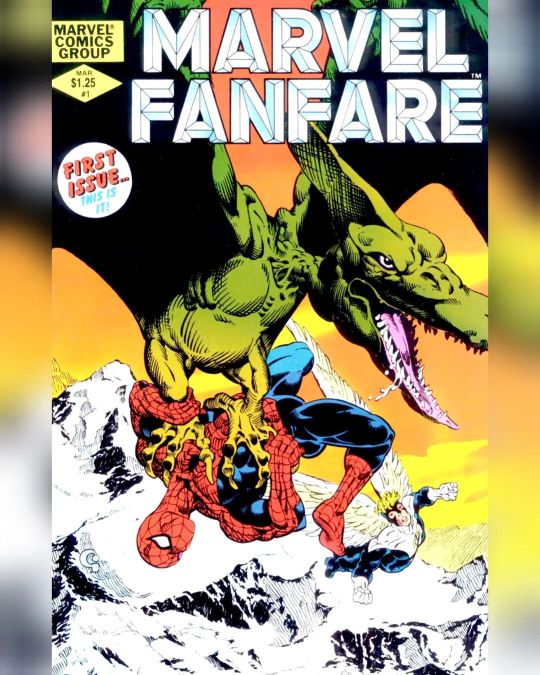
Marvel Fanfare vol 1 1 (1982) . Fast Descent Into Hell! . Written by Chris Claremont Art and Colors by Michael Golden Lettered by Jim Novak Edited by Al Milgrom . Both Angel and Peter Parker went to the Savage Land and things escalated quickly... . #marvelfanfare #80s #savageland #spiderman #angel #xmen #vertigo #gaza #barbarus #brainchild #sauron #marvelman901spiderman #marvelman901brainchild #marvelman901angel #marvelman901xmen #marvelman901barbarus #marvelman901savagemutates #marvelman901vertigo #marvelman901gaza #marvelman901sauron https://www.instagram.com/p/CjX_DH1M351/?igshid=NGJjMDIxMWI=
#marvelfanfare#80s#savageland#spiderman#angel#xmen#vertigo#gaza#barbarus#brainchild#sauron#marvelman901spiderman#marvelman901brainchild#marvelman901angel#marvelman901xmen#marvelman901barbarus#marvelman901savagemutates#marvelman901vertigo#marvelman901gaza#marvelman901sauron
3 notes
·
View notes